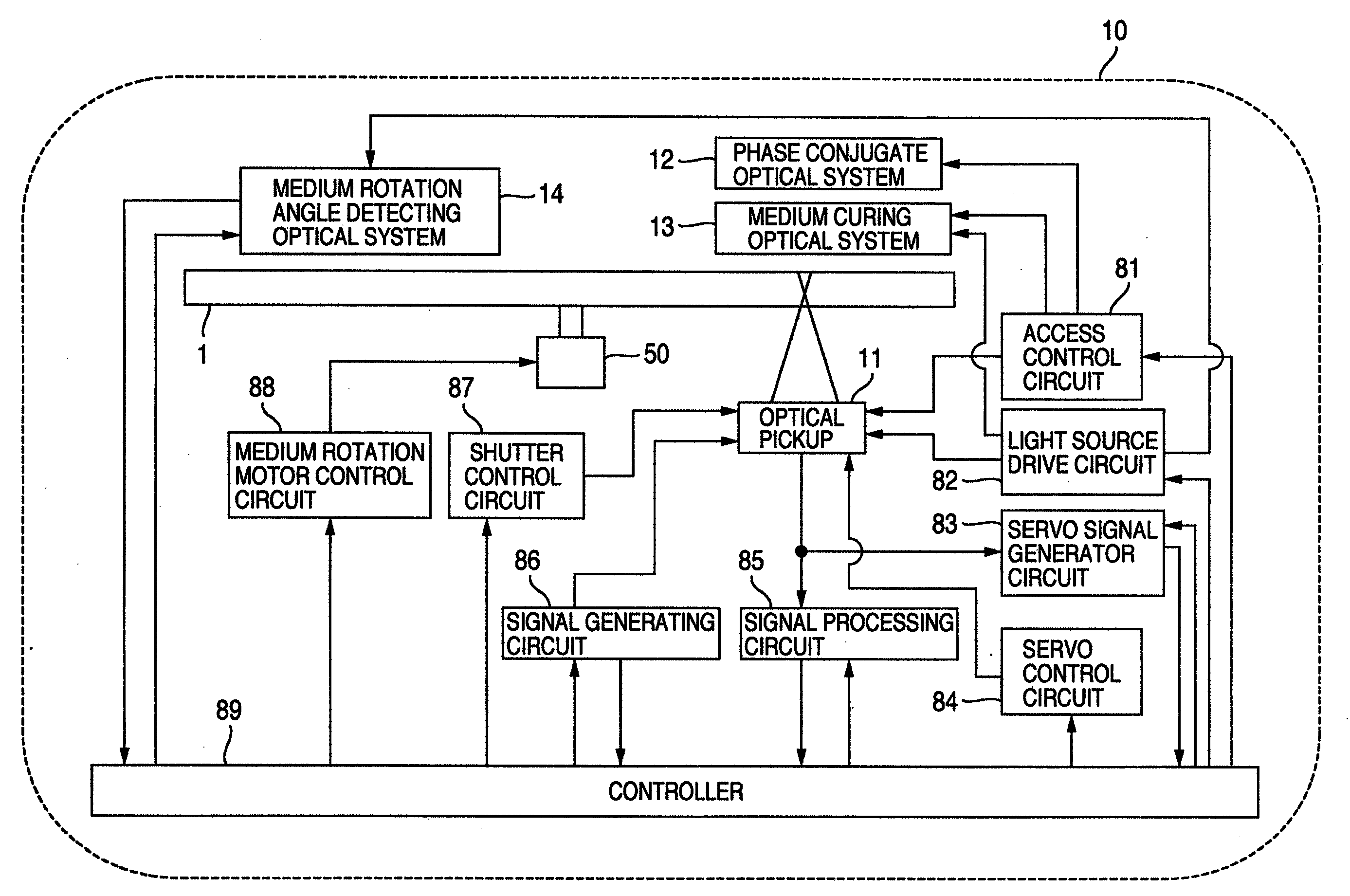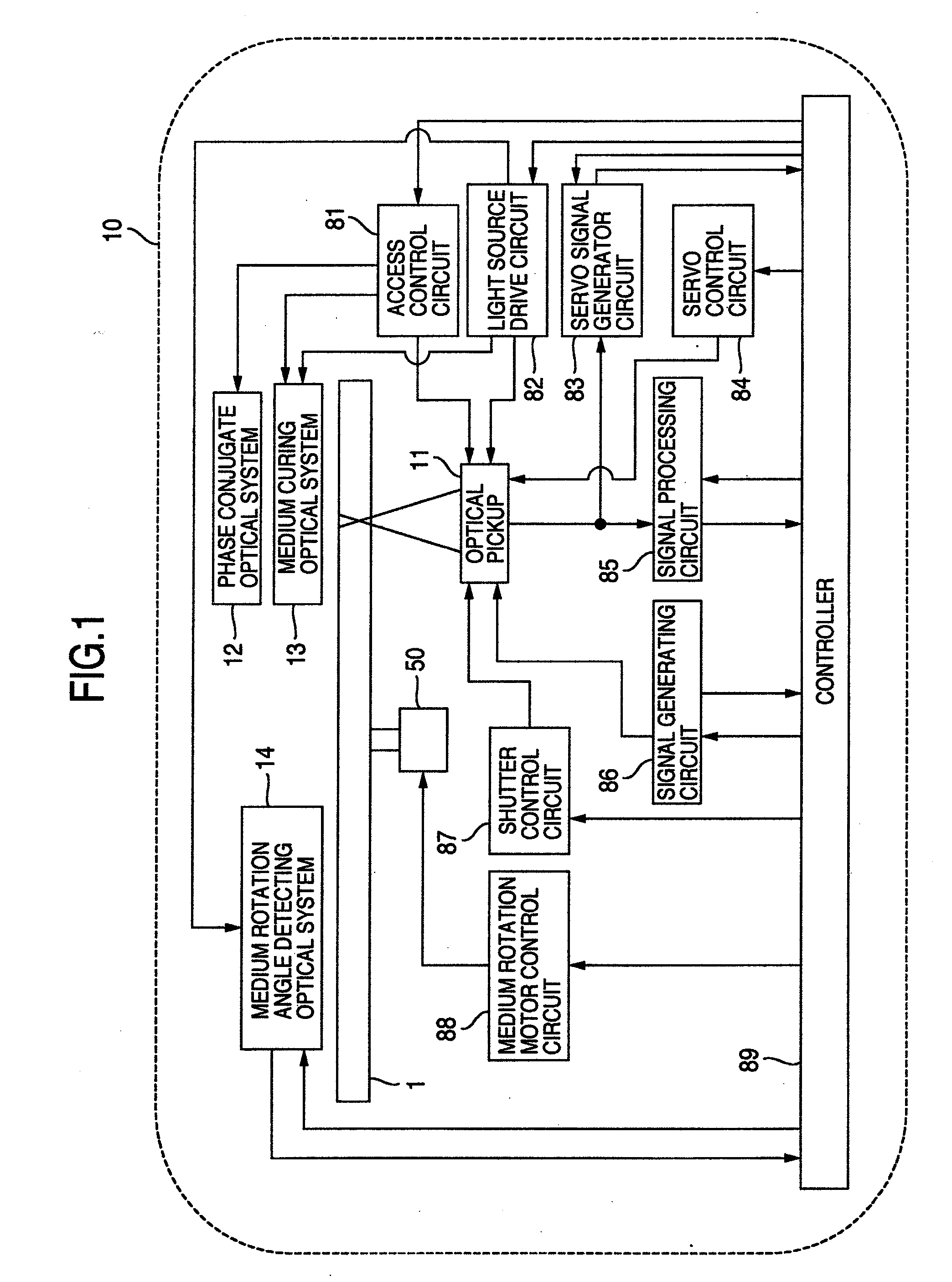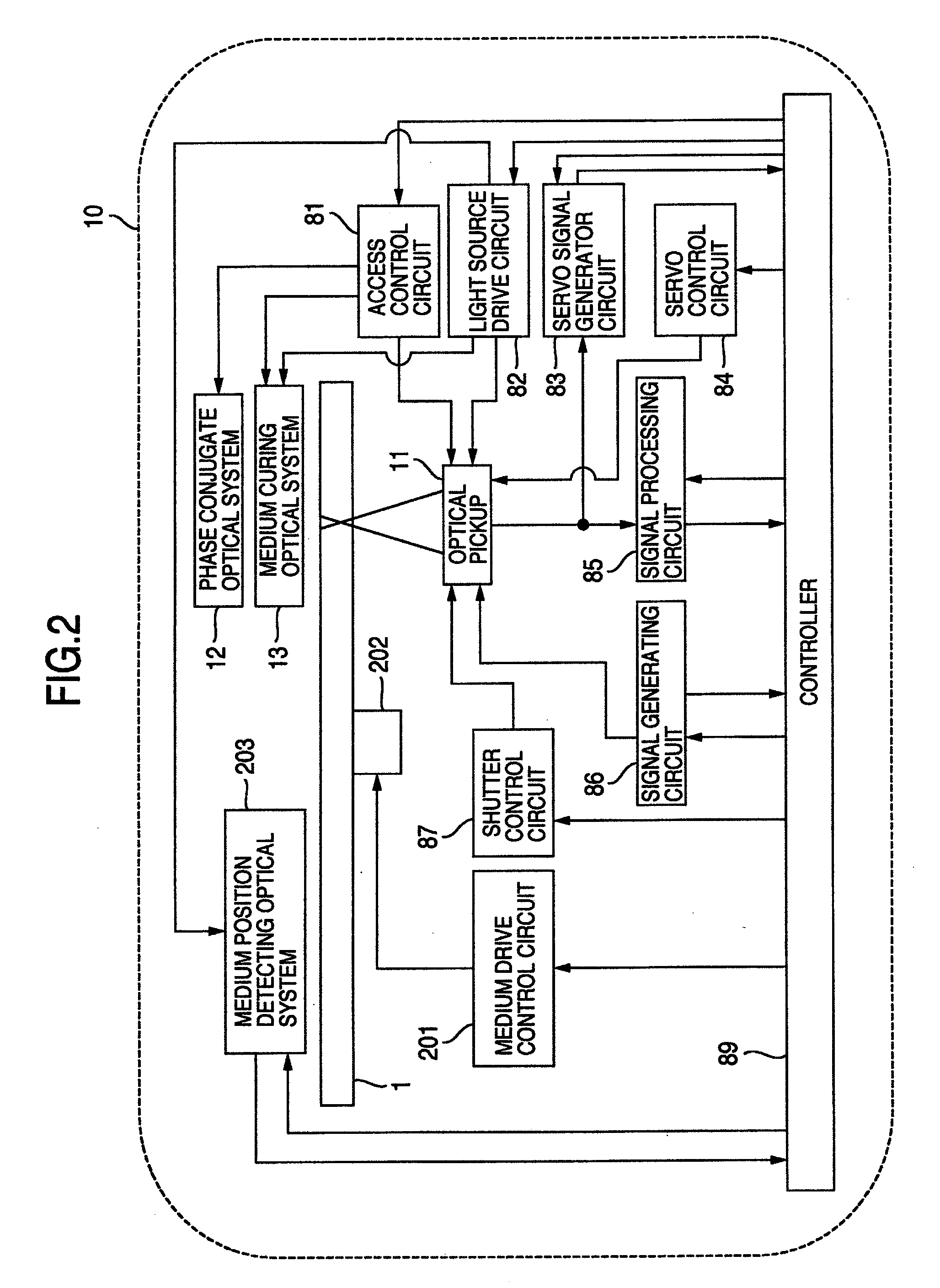Optical pickup, optical information recording and reproducing apparatus and method for optically recording and reproducing information
a technology of optical information and optical pickup, which is applied in the field of optical pickup, optical information recording and reproducing apparatus and method for optically recording and reproducing information, can solve the problems of large number of optical components, degraded quality of the signal to be recorded, and method not suited to compact optical systems. achieve the effect of high reliability
- Summary
- Abstract
- Description
- Claims
- Application Information
AI Technical Summary
Benefits of technology
Problems solved by technology
Method used
Image
Examples
first embodiment
[Overall Structure of Holographic Information Recording / Reproducing Apparatus]
[0033]FIG. 1 shows the overall structure of a holographic information recording / reproducing apparatus for recording and / or reproducing digital information by utilizing holography.
[0034]A holographic information recording / reproducing apparatus 10 is constituted of an optical pickup 11, a phase conjugate optical system 12, a medium curing optical system 13, a medium rotation angle detecting optical system 14 and a rotation motor (spindle motor) 50. The optical information recording medium 1 is structured being able to be rotated by the rotation motor 50.
[0035]The optical pickup 11 has a role of recording digital information by applying a reference beam and a signal beam to the optical information recording medium 1 by utilizing holography.
[0036]In operation, a controller 89 operates to send an information signal to be recorded to a spatial light modulator in the optical pickup 11 to be described later via a ...
second embodiment
[0058]FIGS. 4A and 4B show another example of the optical system structure of the optical pickup 11 of the Monocular system shown in FIGS. 3A and 3B. FIG. 4A shows a recording state. An optical beam emitted from a light source 301 transmits through a collimator lens 302 and becomes incident upon a shutter 303. The shutter 303 has an aperture or opening through which light passes, and an optical transmission quantity can be adjusted by inserting and retracting a light shielding plate. While the shutter 303 is open, the optical beam passes through the shutter 303, and thereafter becomes incident upon a signal beam shutter 401. The optical beam incident upon the shutter 401 is subjected to area division such that a portion of the beam is for a reference beam 312 and another portion is for a signal beam 306.
[0059]The signal beam (P polarized beam) 306 passed through the polarization beam splitter 307 becomes incident upon a spatial light modulator 308 added with a quarter wave plate, vi...
third embodiment
[0069]FIGS. 5A and 5B show another example of the optical system structure of the optical pickup 11 of the Monocular system shown in FIGS. 3A and 3B. Description will be omitted on the same function as that of the optical system of the optical pickup 11 of the Monocular system shown in FIGS. 4A and 4B. FIG. 5A shows a recording state. An optical beam is separated by an optical component 501 into a parallel beam as the signal beam 306 and a converged beam as the reference beam 312 indicated by a broken line. For example, the optical component 501 is a diffraction lens 601 shown in FIG. 6 and uses a 0-th order beam as the signal beam and a 1-st order diffraction beam as the reference beam. In this structure, the 0-th order beam may be used as the reference beam and the 1-st order diffraction beam as the signal beam. By using the 0-th order beam and 1-st order diffraction beam either as the signal beam or as the reference beam in the above manner, an optical pickup can be realized whic...
PUM
| Property | Measurement | Unit |
|---|---|---|
| wavelength order | aaaaa | aaaaa |
| optical | aaaaa | aaaaa |
| area | aaaaa | aaaaa |
Abstract
Description
Claims
Application Information
 Login to View More
Login to View More - R&D
- Intellectual Property
- Life Sciences
- Materials
- Tech Scout
- Unparalleled Data Quality
- Higher Quality Content
- 60% Fewer Hallucinations
Browse by: Latest US Patents, China's latest patents, Technical Efficacy Thesaurus, Application Domain, Technology Topic, Popular Technical Reports.
© 2025 PatSnap. All rights reserved.Legal|Privacy policy|Modern Slavery Act Transparency Statement|Sitemap|About US| Contact US: help@patsnap.com



